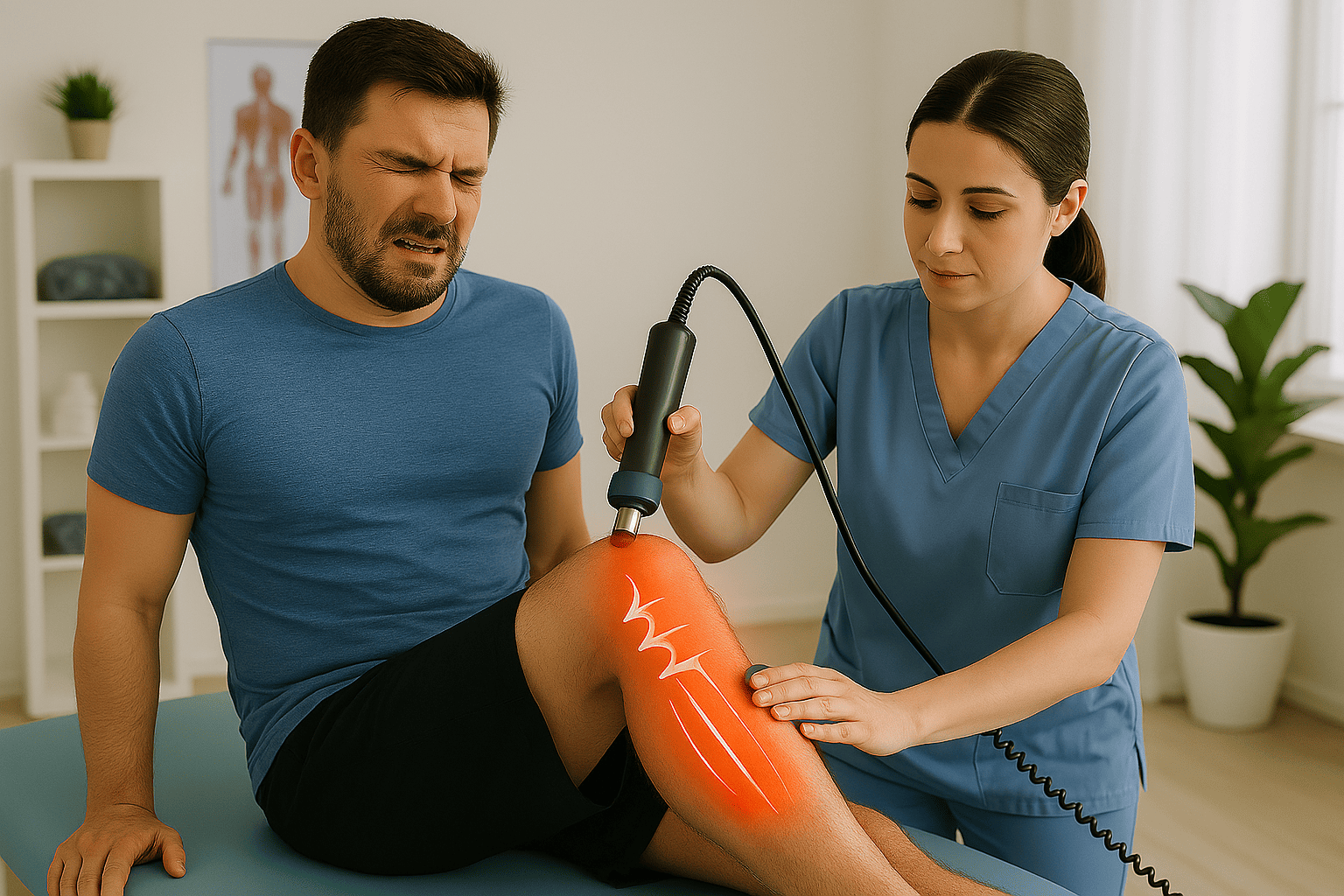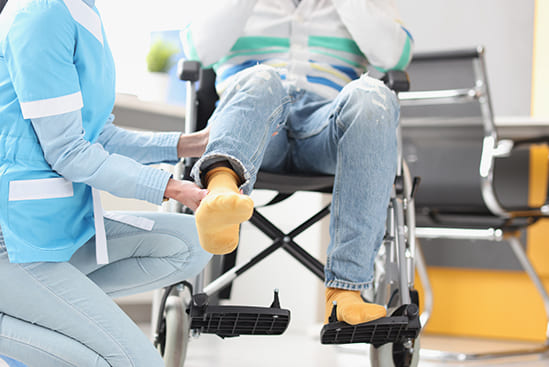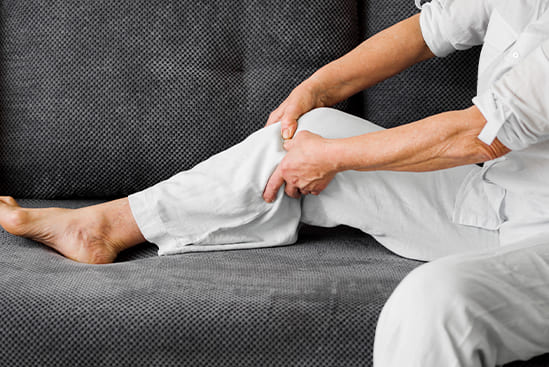
Synapse Physiotherapy
Introduction
Athletes, whether professional or recreational, often push their bodies to the limit. While this dedication brings incredible performance gains, it can also lead to overuse injuries and strain on muscles, tendons, and joints. At Synapse Physiotherapy, we understand how frustrating and painful these injuries can be, not just physically, but emotionally too. That’s why we offer cutting-edge solutions like Shockwave Therapy to speed up healing, reduce pain, and help you return to the activities you love.
As a trusted Sports Injury Clinic in the Klang Valley, Synapse specialises in advanced rehabilitation treatments, including Radial and Focused Shockwave Therapy. This non-invasive technique stimulates the body’s natural healing process, boosts circulation, and breaks down scar tissue. Whether you’re recovering from a long-standing tendon issue or a stubborn muscle injury, shockwave therapy is a game-changer.
Let’s explore five common sports injuries we treat using shockwave therapy at our Sports Physiotherapy centre.
1. Plantar Fasciitis
Why Shockwave Works
One of the most common causes of heel pain among runners, hikers, and athletes who spend long hours on their feet is Plantar Fasciitis. This condition is caused by inflammation of the plantar fascia, the thick band of tissue running along the bottom of your foot.
Shockwave therapy targets the inflamed area with high-energy sound waves, increasing blood flow and stimulating cell regeneration. At Synapse, our physiotherapists use this method to break down fibrous tissue and accelerate healing. Most patients report significant pain reduction after just a few sessions.
Who It Helps
- Runners
- Dancers
- Tennis players
- Golfers
2. Tennis Elbow (Lateral Epicondylitis)
Why Shockwave Works
Tennis elbow isn’t limited to tennis players, it affects anyone performing repetitive arm and wrist movements, including manual workers and desk job professionals. The condition results in pain and inflammation around the outer elbow due to overuse of the forearm muscles.
Shockwave therapy stimulates collagen production and promotes the resorption of calcium deposits at the site of pain. This reduces inflammation, improves range of motion, and accelerates healing. At Synapse, our therapists tailor treatment to each individual’s severity and activity level.
Who It Helps
- Tennis and squash players
- Weightlifters
- Musicians
- Office workers with poor ergonomics
3. Patellar Tendinopathy (Jumper’s Knee)
Why Shockwave Works
This condition affects the tendon connecting the kneecap to the shinbone and is common among athletes in jumping sports like basketball, volleyball, and track and field. It causes pain just below the kneecap and worsens with activity.
Shockwave therapy increases metabolic activity and circulation at the tendon site, enhancing tissue repair. Synapse’s clinicians combine this treatment with strengthening exercises to ensure long-term recovery and prevent recurrence.
Who It Helps
- Basketball players
- Volleyball players
- Footballers
- High jumpers
4. Achilles Tendinopathy
Why Shockwave Works
Achilles tendinopathy is a painful condition resulting from overuse of the Achilles tendon, which connects your calf muscles to your heel bone. It’s especially common in runners and athletes in high-impact sports.
By delivering focused acoustic energy to the affected area, shockwave therapy promotes healing in chronic cases where traditional treatments may have failed. At Synapse, we often combine shockwave with manual therapy and eccentric loading programs to restore full function.
Who It Helps
- Runners and sprinters
- Gym-goers doing plyometrics
- Soccer players
- Trail runners
5. Rotator Cuff Tendinopathy
Why Shockwave Works
Rotator cuff injuries are frequent among athletes who engage in overhead sports like swimming, baseball, and badminton. These injuries can result in pain, reduced shoulder mobility, and weakness, particularly during lifting or throwing.
Shockwave therapy enhances neovascularisation (formation of new blood vessels), which speeds up the repair of tendinous tissue in the shoulder. At Synapse, we use precise application techniques to target deep-seated rotator cuff injuries and support patients with guided exercise rehabilitation.
Who It Helps
- Swimmers
- Badminton and tennis players
- Weightlifters
- Baseball pitchers
What Makes Shockwave Therapy at Synapse Different?
At Synapse Physiotherapy, we don’t just apply shockwave therapy and send you on your way. Instead, our experienced team conducts a detailed assessment to understand your biomechanics, posture, and muscle imbalances. Shockwave therapy is then integrated into a comprehensive rehabilitation plan tailored to your sport and goals.
Here’s what sets us apart:
- Personalised Treatment Plans: Every injury is different, so your therapy should be too.
- Certified Physiotherapists: Our team has advanced training in shockwave therapy and sports injury management.
- Multi-Clinic Access: With five convenient locations across the Klang Valley, recovery is never far from home.
- Integrated Care: We combine shockwave therapy with manual therapy, dry needling, and strength training for holistic results.
Additionally, if you are also struggling with spinal issues, our Spine & Core Rehabilitation Programme is a dedicated solution designed to complement your recovery, especially for those seeking physiotherapy for slip disc or postural dysfunctions.
Frequently Asked Questions (FAQs)
1. What types of injuries respond best to shockwave therapy?
Shockwave therapy is most effective for chronic soft tissue injuries, especially those involving tendons, ligaments, and fascia. Conditions like plantar fasciitis, tennis elbow, and physiotherapy for slip disc-related muscle tightness respond well.
2. Is shockwave therapy painful?
While some patients may experience mild discomfort during the session, it is generally well-tolerated. The sensation is often described as a tapping or pulsing on the skin.
3. How many sessions will I need?
Typically, patients require 3 to 6 sessions, depending on the severity and chronicity of the condition. Your physiotherapist will evaluate your progress at each stage.
4. Can shockwave therapy help with slip disc-related pain?
Yes, while it doesn’t treat the disc itself, shockwave therapy can reduce muscle tightness and associated tendon inflammation, making it a valuable adjunct in physiotherapy for slip disc.
5. Do you combine other therapies with shockwave treatment?
Absolutely. At Synapse, we integrate shockwave therapy with manual therapy, dry needling, strengthening programmes, and tailored rehabilitation plans to address the root cause of your pain.
Final Thoughts
Sports injuries can be frustrating, but they don’t have to define your journey. With innovative solutions like shockwave therapy, athletes of all levels can recover faster, train smarter, and reduce the risk of reinjury. At Synapse Physiotherapy, we’re committed to helping you move better and live pain-free.
If you’re searching for a reliable and effective Sports Injury Clinic for physiotherapy for slip disc or sports injury, Synapse offers the perfect blend of science, care, and performance-driven recovery.
Book your assessment today and get back in the game, stronger than ever.
Tags :

Back & Neck Pain
Conditions such as stiffness, postural abnormalities and muscle overuse from prolonged desk work at the office or home is more prevalent than most would think. We provide the necessary tools to fix you up and educate you on ergonomics which can unload unnecessary stress.
- Spine & Core Rehabilitation
- Strength & Conditioning Programme
- Pain Management
- Biomechanical Assessment
- Sports Physiotherapy
- Group Class

Sports Injuries
Rolled ankles, jarred knees, impinged shoulders are few conditions in the plethora of sports injuries which can hamper performance and limit our enjoyment of sports. Physiotherapy not only treats the symptoms of these conditions but propels your overall fitness to greater heights.
- Strength & Conditioning Programme
- Pain Management
- Biomechanical Assessment
- Sports Physiotherapy
- Shockwave Therapy
- Group Class

Work Desk Injuries
Conditions such as stiffness, postural abnormalities and muscle overuse from prolonged desk work at the office or home is more prevalent than most would think. We provide the necessary tools to fix you up and educate you on ergonomics which can unload unnecessary stress.

Pre-Post-Surgical Conditions
Surgery involves going through preparation both before and after. Physiotherapists play a vital role in getting your body ready for surgeries with circulatory, breathing and strengthening exercises. After the procedure, let us be there for your recovery and rehabilitation, taking it one step at a time.

Scoliosis & Postural Abnormalities
The way we stand, sit, walk and sleep has influence over our posture and the overall balance of muscles controlling its alignment. A comprehensive screening can be done by our physiotherapists to detect abnormalities, which we will aid in correcting.

Neurological Conditions
Neurological disabilities such as stroke, nerve compression and neuropathies can be barriers for patients to live life to its fullest. We at Synapse are committed to help you overcome these hurdles by ensuring functional mobility and quality of life is at its optimum by providing the right treatment and exercises.

Osteoarthritis & Rheumatism
Joint degeneration and inflammation happens as the human body grows older, but that does not mean our way of life degenerates as well. Relief your joint pains with a joint effort together with your physiotherapist, who will provide pain-relief treatments and prescribe exercises for your wellbeing.

Conditions Relating To Elderly
Common conditions in the older age population include hips & knee pain, back & neck pain, osteoarthritis, rheumatism, fear of falling and many more. Aging and degeneration of bodily function is inevitable, but here at Synapse, we will help you live the best of your life.

Home Physiotherapy
We understand that some conditions or injuries can make it difficult to receive rehabilitation at our clinic be it mobility or transportation issues. Our objective is to provide you with the same high-quality physiotherapy services at home that you would receive in-clinic.
